National World journalists striking over 'industry in crisis'
- Published
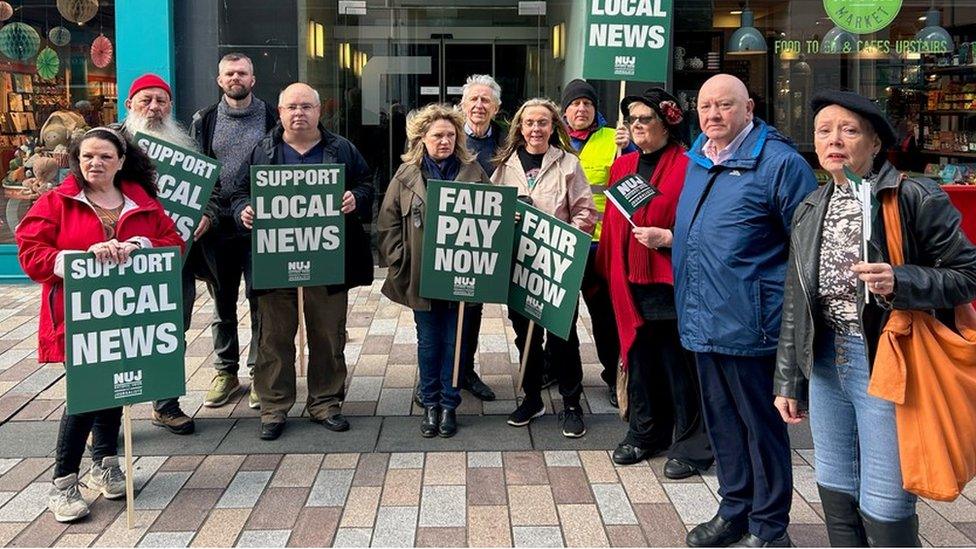
NUJ members in Belfast took part in strike action on Monday
Journalists in Northern Ireland who work for regional publisher National World have gone on strike over what has been described as a "crisis" in the industry.
Members of the National Union of Journalists (NUJ) are starting a series of strikes over pay and conditions.
National World operates more than 100 newspapers across the UK.
One NUJ representative said some journalists were relying on second incomes or food banks.
National World has declined to comment on the industrial action.
Staff taking part in the action in Northern Ireland include those at the News Letter, the oldest English language daily paper in circulation, and the Derry Journal, Ireland's second oldest newspaper.
The NUJ said the industrial action was the first time in the Journal's 251-year history that staff had gone on strike.
Other titles owned by National World in Northern Ireland include the Londonderry Sentinel, Banbridge Chronicle, Coleraine Times, Newry Reporter and Ulster Star.
The publisher's main titles across England and Scotland include The Scotsman, The Yorkshire Post, Sunderland Echo and the Lancashire Post.
Earlier this month, NUJ members at National World, which now owns Morton Newspapers, voted 78% in favour of the strike action.
In July, National World granted a 4.5% pay award after months of negotiations with the NUJ stalled - the union and the publisher were involved in talks through the conciliation service Acas.
However, the NUJ said that following these discussions, more than 330 journalists across the UK would go on strike on 18 September.
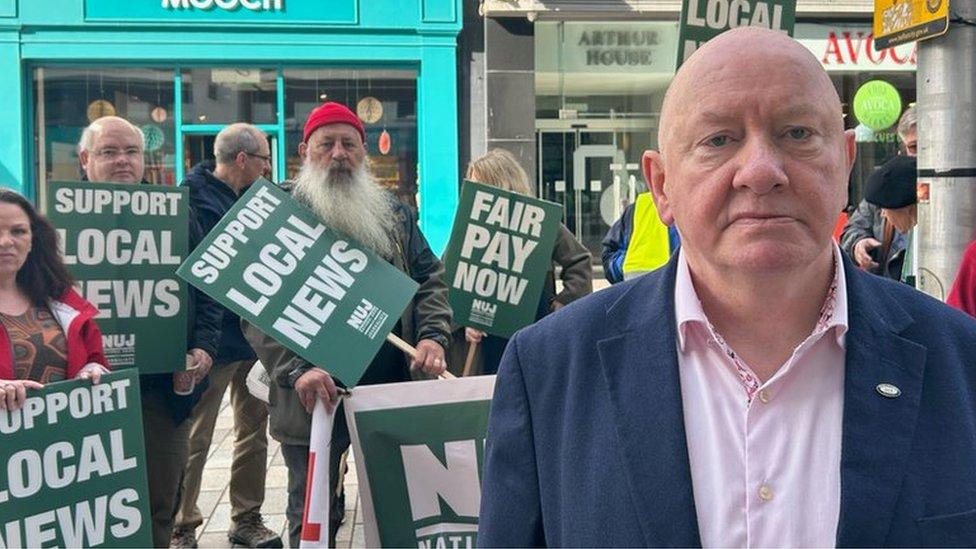
Seamus Dooley said journalism and journalists are in a crisis
Speaking at the picket line in Belfast, NUJ's Irish Secretary Seamus Dooley said journalism is becoming an "unaffordable profession".
Mr Dooley added the financial strain has forced some to seek help with basic necessities.
'A clarion call'
"We have journalists within the local newspaper industry who are relying on second incomes.
"We have had examples in the past of journalists actually relying on food from food banks."
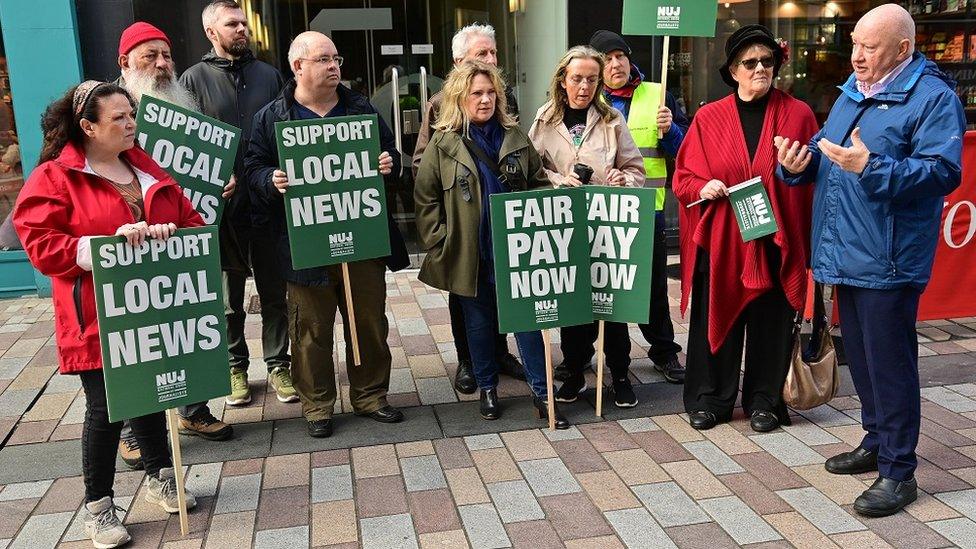
330 journalists across the UK are striking over pay and conditions at National World owned newspapers
Mr Dooley added: "This is a clarion call to this employer but also to anyone who cares about local news."
He said conditions for many local journalists is a real challenge.
"It is important that we have journalists that can pay their bills - some can't at the moment."
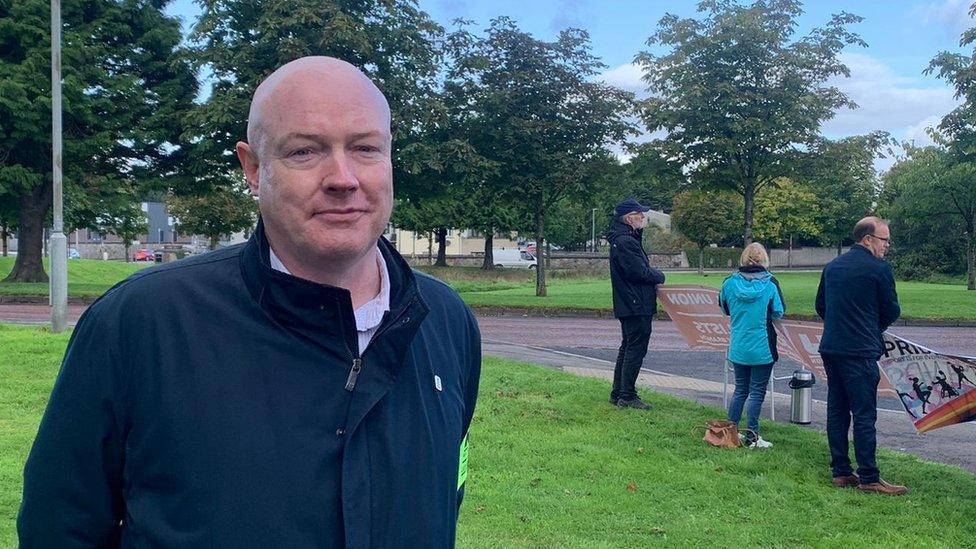
Ian McGuinness, NUJ Irish organiser, said members do not want to be on the picket line but have been forced to this point
Speaking at the picket line in Londonderry, Ian McGuinness, of the NUJ, said its members had been forced to this point.
"It goes against the grain for journalists to be out on the picket line because they take great pride in their work in newspapers, online and in radio and TV stations," Mr McGuiness said.
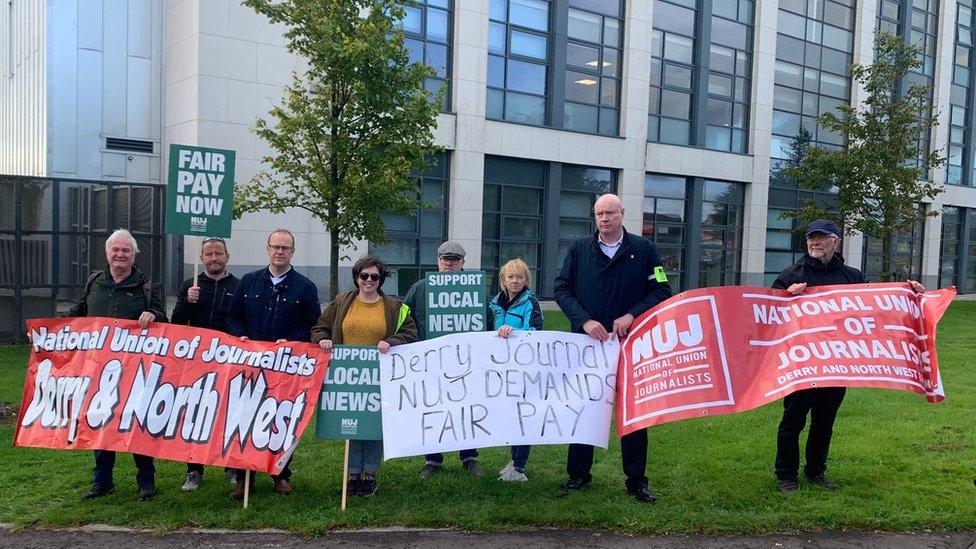
The NUJ said this is the first time in the Derry Journal's 251-year history that their journalists have gone on strike
He said a big reason for their members taking to the picket line is the "years and years of cuts at the National World".
"There have been 30 compulsory and voluntary redundancies recently which means there are fewer people doing more work for less pay because they are getting below-inflation pay rises."
Mr McGuiness said their members rejected a 4.5% pay award from National World, which he described as a "slap in the face" to their members.
As well as working to rule, Mr McGuiness said NUJ members at the National World-owned titles plan for further strike action on 22 and 25 September.